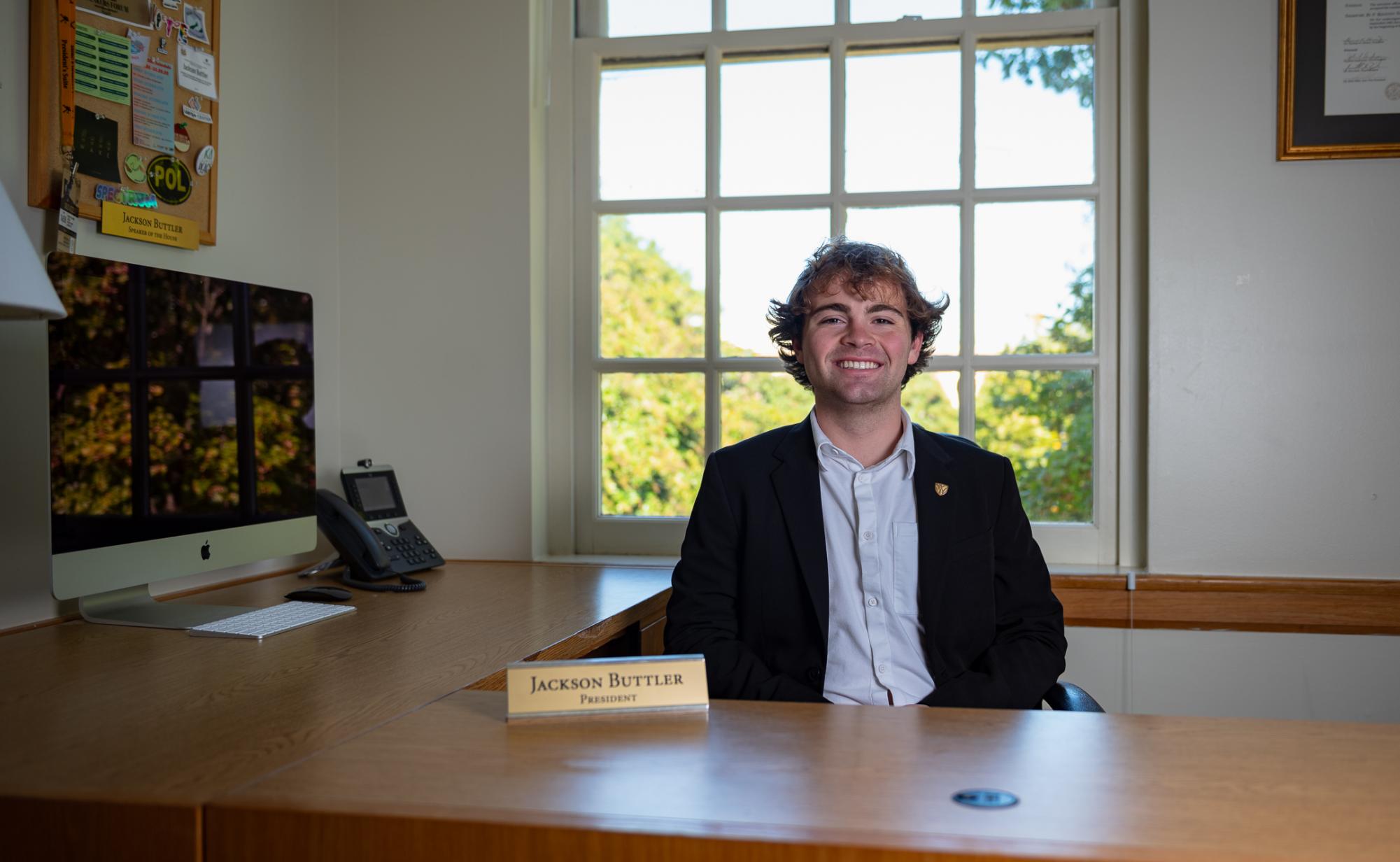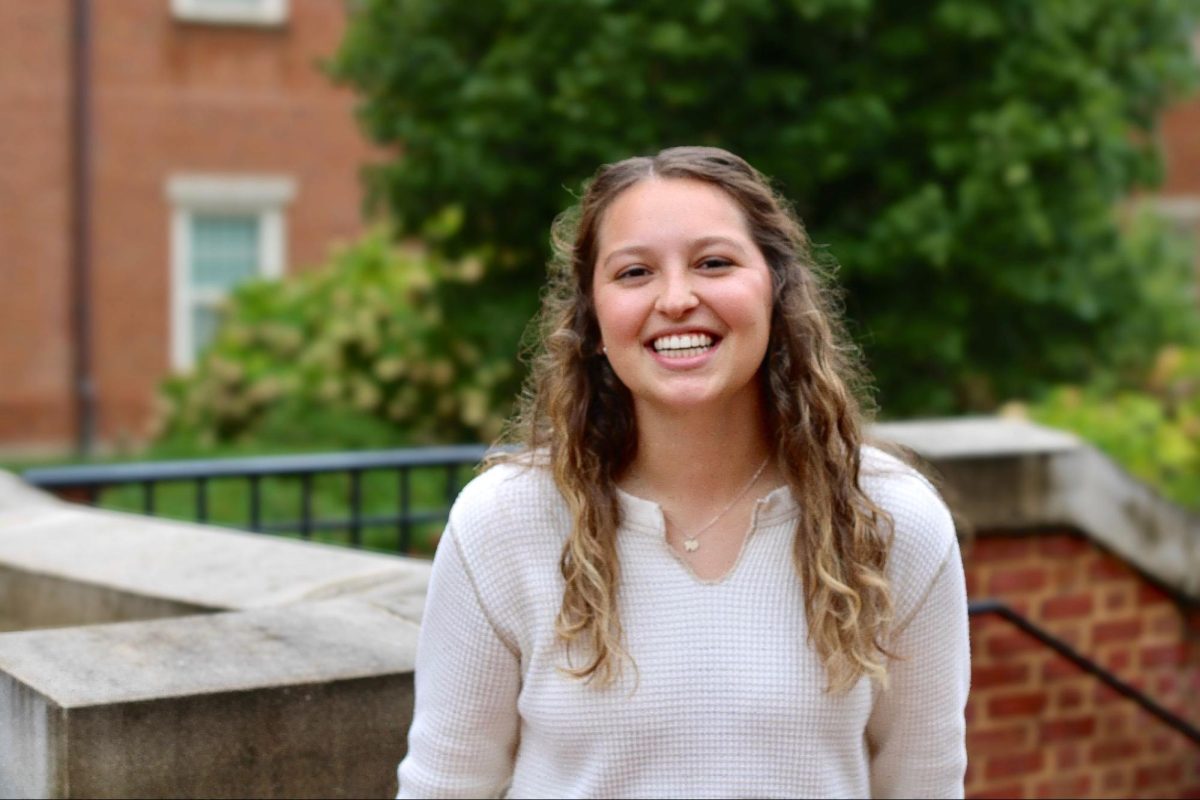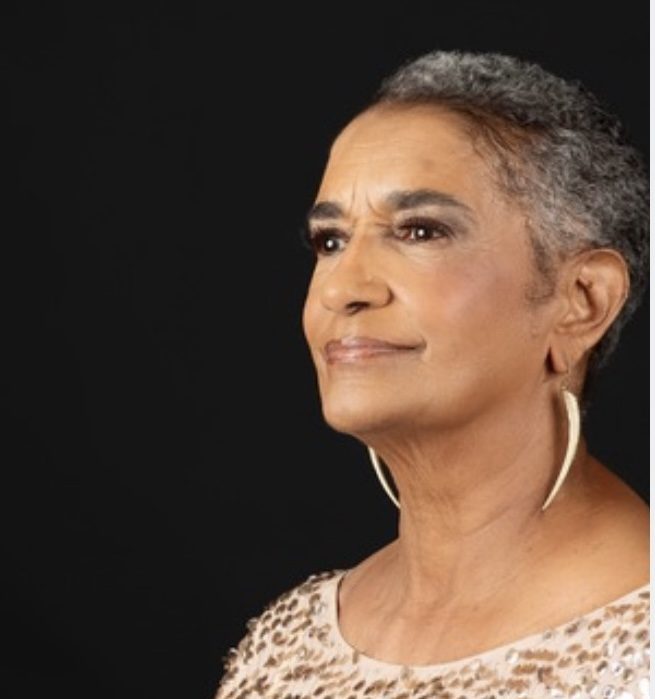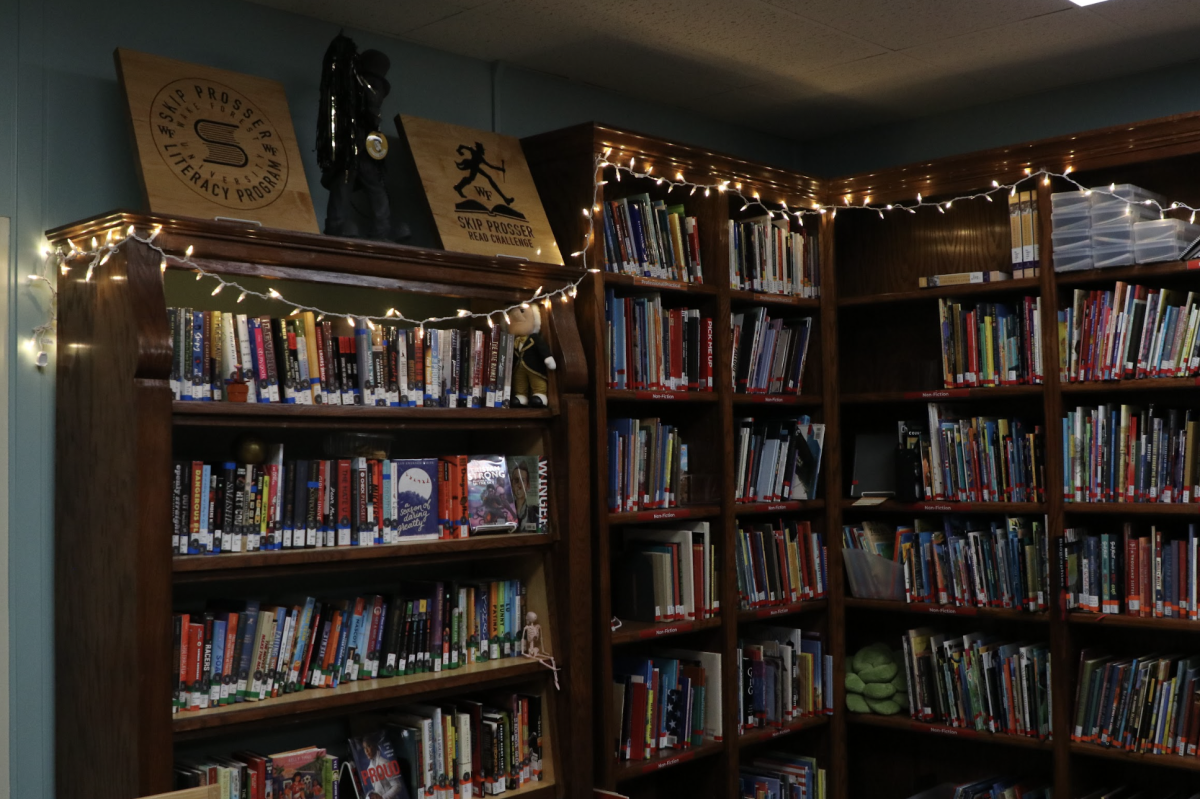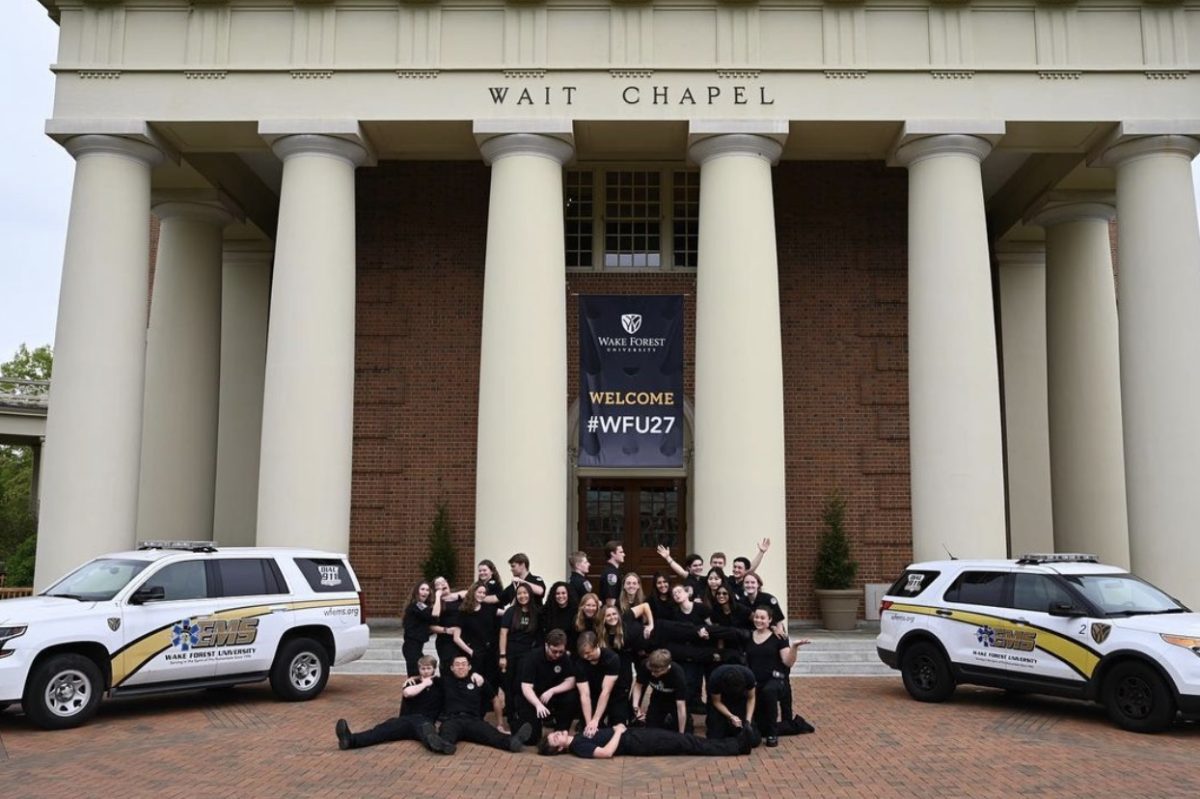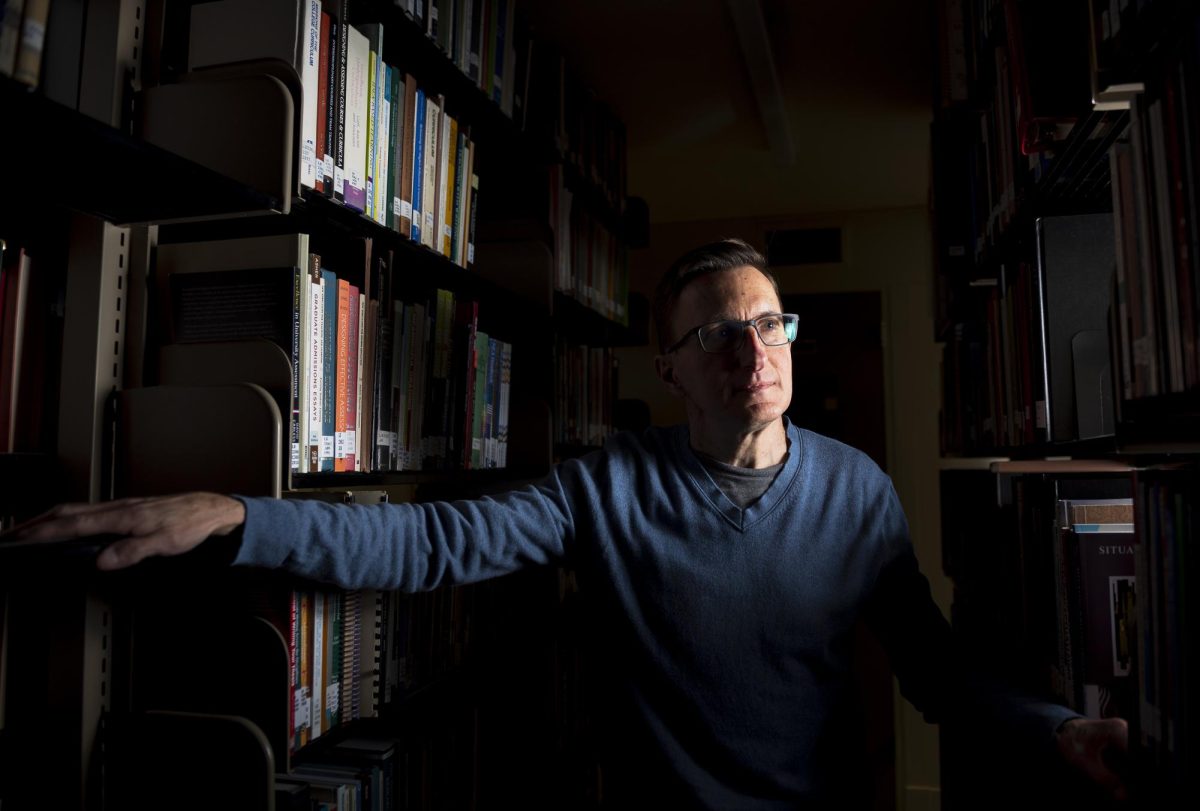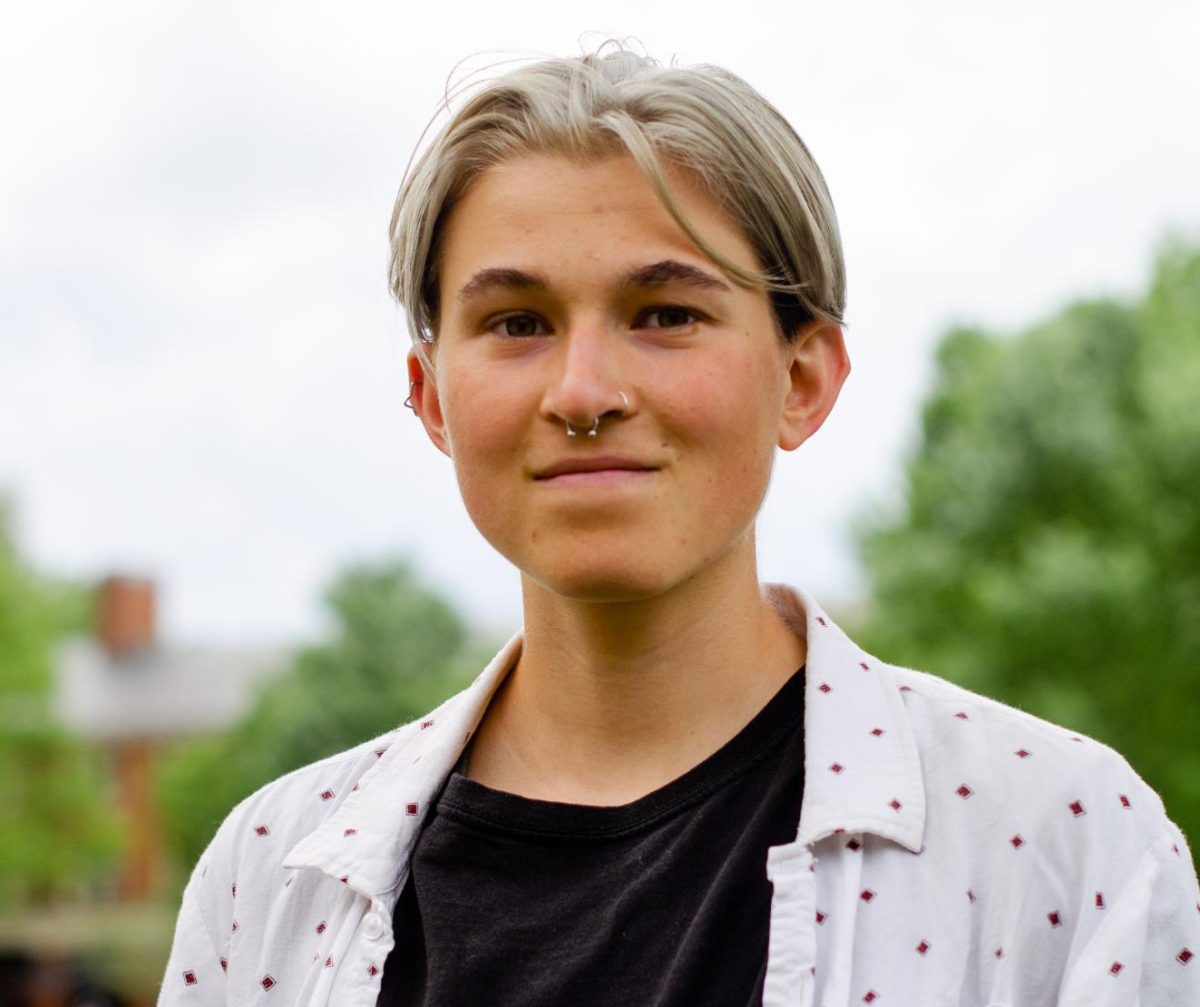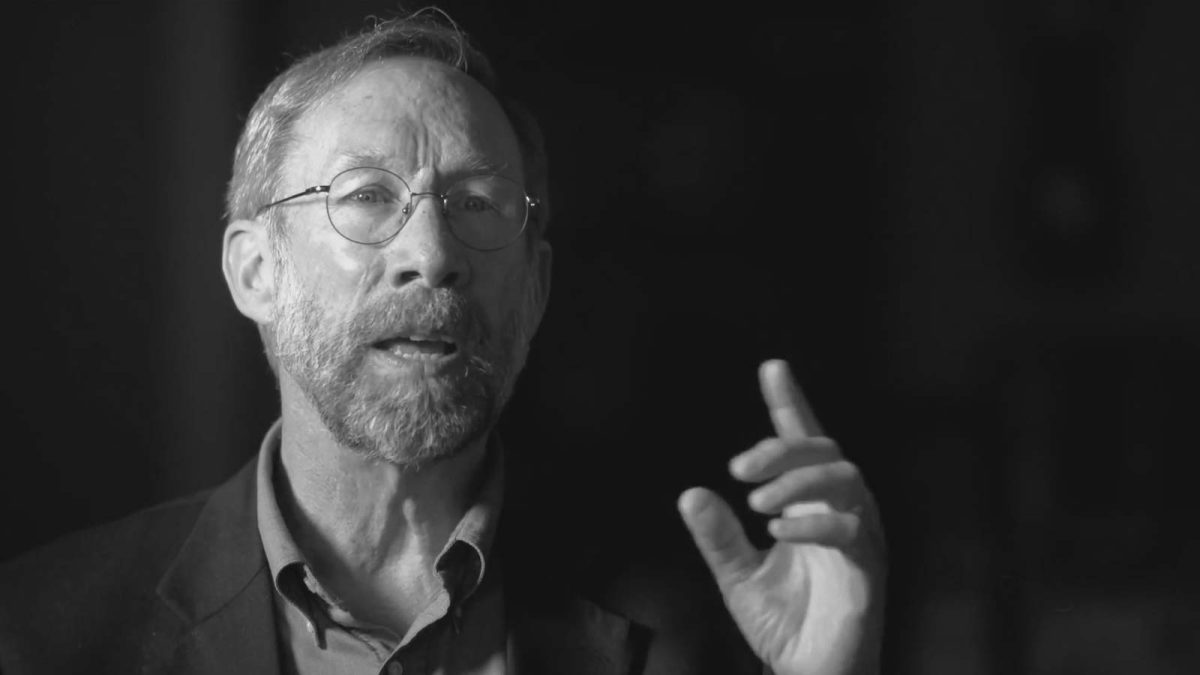When Student Body President Jackson Buttler reflects on his time at Wake Forest, it’s impossible to imagine his experience without Student Government.
Yet his Student Government career could have come to an end before it started: freshman year, he tied to become a senator in his first election. Out of Angelou Residence Hall, he won by one vote in a run-off election.
His first year in Student Government coincided with a critical time at the university. Entering in the fall of 2020, he arrived on campus during a tumultuous period of Wake Forest history that resembled no other.
Buttler enrolled at Wake Forest confident in his decision to become a Politics & International Affairs major, even writing about it in his Common Application essay. However, he did not know what a traditional college experience looked like, or that he would go on to become a Student Government senator. When a friend mentioned his intent to run, Buttler recognized the need for student input and decided that he would enter the race as well.
Though his margin of victory was small, his efforts to improve campus have been anything but. Right away, Buttler threw himself head-first into Student Government, and it wasn’t long before his dedication was noticed.
“The Speaker of the House and the President at the time pulled me into one of their offices — which is now my office,” Buttler said. “[They said] ‘Hey, I would love to see you in a higher leadership position, especially as a first-year student. Would you be interested in being the COVID-19 liaison?’”
Alongside fellow freshman Cate Pitterle, Buttler became a point of contact with high-level administration members. As a result, he was able to see his feedback on COVID-19 issues translate to changes in university policy.
“I thought I would really be able to have impact in a way that would make the experience of my peers better, and that was most important to me,” Buttler recalled.
Still, when asked about his greatest accomplishment, Buttler quickly points to his work on the Campus Climate Survey.
“We know sexual violence has been a pretty pervasive issue on this campus for a while. Getting to work on that and see results and see that this is something…the rest of the student body is passionate about [as well] is a really rewarding experience,” Buttler said.
The survey, which was conducted in Spring 2022, sought to provide insight into sexual misconduct on campus. This also addressed the efficacy of sexual assault prevention training, Title IX policies and student awareness about resources for those affected by sexual harassment or assault. The survey has since become a permanent aspect of the SAFE Office’s services, meaning that it will be readministered every four years to provide a better understanding of how these issues evolve over time.Getting the project off the ground required a tremendous amount of effort from students, staff and faculty across the university — Buttler worked to see the Campus Climate Survey come to fruition since he was a sophomore.
While the survey was being administered, he worked on a Student Government committee whose purpose was to encourage students to take the survey, ultimately yielding a response rate of 38%. In a similar study that the Association of American Universities (AAU) administered to 33 colleges and universities, the response rate was 21.9%.
After the survey was completed, Buttler collaborated with his Student Government peers and the administration on how to best communicate the results and their implications to the study body. Though the initial survey has concluded, responding to the results to create a better on-campus environment continues to be a priority for him in his role as president.
“I’m working on a lot of different resource-advertising projects,” Buttler said. “Trying to communicate what Wake Forest offers to our students — especially those who have undergone sexual violence — is incredibly important because Wake Forest has so many amazing resources. I feel like a lot of people don’t know what is offered.”
Another one of his projects involves using the data obtained through the Campus Climate Survey to work on providing an institutionalized intermediary between the Title IX office and professors.
“[This would mean] that it is not incumbent upon students to communicate that they are undergoing a Title IX process with professors,” Buttler explained. “That’s coming around the bend.”
Additionally, a new Campus Climate Survey measuring inclusivity on campus will be conducted next spring, the lack of which Buttler also described as a pervasive problem on campus.
“I plan to use the experience that I gained on the Campus Climate Survey to inform what is done moving forward for the inclusion Campus [Climate] Survey,” Buttler said. “I think it’s also going to be really rewarding.”
Buttler continued: “I see [the Campus Climate Survey] as a legacy that I can leave behind as something that I worked on as a sophomore and a junior and a senior; something that will continue to happen every four years after I leave.”
Other improvements that Buttler has helped spearhead are centered within Student Government itself. In his role as Speaker of the House last year, the organization was focused on making internal changes to lay a stronger foundation on which future leaders can rely. As part of this initiative, two new branches were established: the Student Organizations Judicial Assembly and the Student Organizations branch.
“[The new branches] make things a lot more streamlined,” Buttler said. “And I’m really happy with how that has translated from an idea that I had when I was Speaker of the House. We put a lot of work into it.”
Still, the work that Butter and his peers have put into their organization to make student experiences better isn’t always recognized. Though many place the pandemic in the past, Buttler notes that its effects linger.
“It’s really hard, especially after COVID, to get buy-in from students about what we’re doing,” Buttler said. “There have been many events that we’ve put on, [such as] mental health panels, [Diversity Equity and Inclusion] panels, town halls that [Wake Forest] President [Susan] Wente and Dr. [Shea Kidd Brown] attended where we had zero student attendance. For those events that did get student attendance, it was small.”
This year, one of Buttler’s focuses is on communicating the importance of Student Government to the greater student body to increase engagement — an obstacle with which he imagines other student governments across American universities also struggle.
“I think the political dynamic which we find ourselves in today has made people tired of organizations like student government,” he said. “Trying to reframe that narrative is so important to me. [Engaging] with our organization will make your college experience better.”
Buttler’s future is not entirely clear, as he promised himself a break between his undergraduate experience and graduate school if he became Student Body President. In the long-term, though, he hopes to attend law school. Until then, his goal is to return to Capitol Hill, where he served as an intern for Congresswoman Valerie Foushee in the summer of 2023.
“[My work] will definitely be something in the political realm,” Buttler said. “That’s definitely my calling.”


